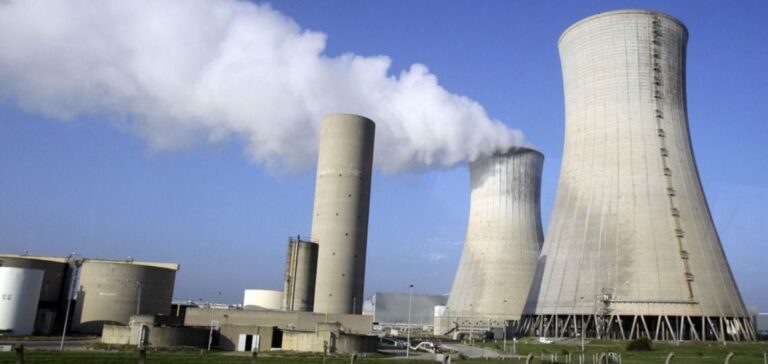The Minister of Energy Transition, Agnès Pannier-Runacher, opened the debates on the nuclear bill in the National Assembly by reassuring on the safety of the installations. While employees of the Institute for Radiation Protection and Nuclear Safety (IRSN) were demonstrating against the controversial reorganization of safety, the government added the nuclear safety reform by a simple amendment, adopted by the deputies in committee.
Nuclear safety reform
Agnès Pannier-Runacher, the Minister of Energy Transition, opened the debates on the bill dedicated to nuclear power, last Monday at the National Assembly. She assured that “the acceleration” of nuclear power “will not be at the expense of the safety of our facilities,” in response to concerns about nuclear safety, which led to demonstrations by employees of the Institute for Radiation Protection and Nuclear Safety (IRSN) near the Palais Bourbon.
The government added the nuclear safety reform by a simple amendment, adopted by the deputies in committee. The aim of this reform is to integrate the IRSN, a technical expert, into the French Nuclear Safety Authority (ASN), which is the watchdog for nuclear power plants. Agnès Pannier-Runacher stated that the reform would make it possible to broaden the missions of the ASN, which would thus become the second largest safety authority in the world in terms of human and financial resources, with total scientific credibility.
A revival of the nuclear industry deemed to be environmentally friendly
The minister also announced that the revival of the nuclear industry is an environmentalist decision, “against fossil fuels, accelerate renewable energy is to be environmentalist. Relaunching our nuclear industry is being environmentally friendly,” she said.
Agnès Pannier-Runacher also announced that the reform would allow the construction of six new EPR reactors by 2035. She considered that it is “neither more nor less the thread of the greatest French industrial adventure since the 1970s that we are renewing”.
Persistent opposition
Despite the assurances of the Minister of Energy Transition, the nuclear safety reform is still opposed. The IRSN and ASN unions, as well as the left and ecologists, denounced a “totally irresponsible dismantling” and an extremely dangerous “atomic headlong rush”. For them, the bill must not jeopardize the safety of nuclear facilities and populations.





















